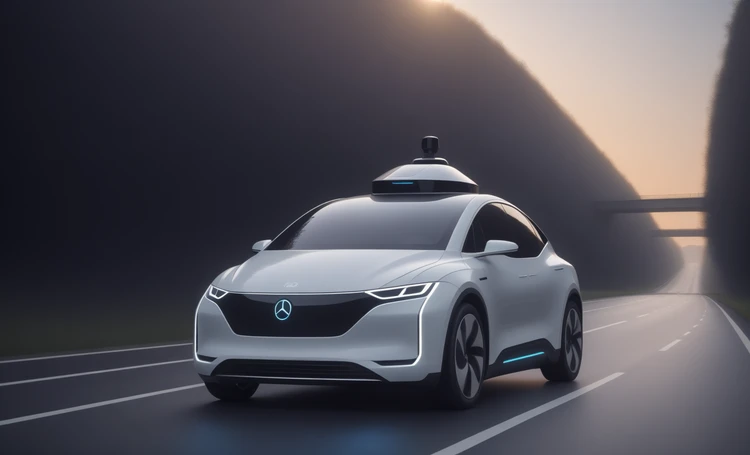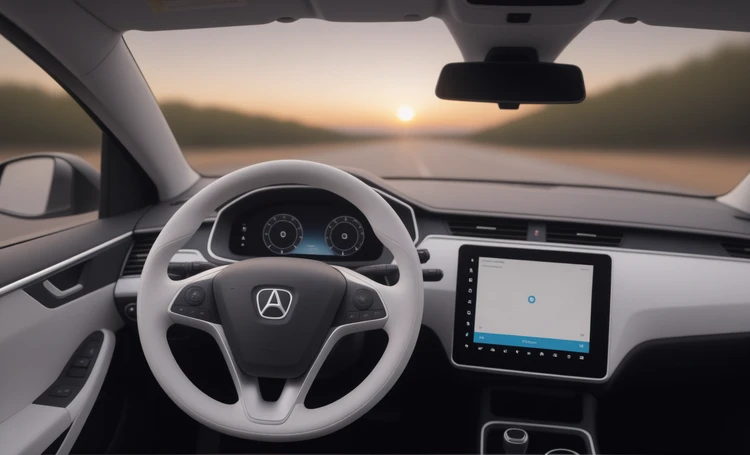🚗🌍 Autonomous cars: impact on tourism development
Autonomous cars are revolutionizing the world of transportation, and find out how autonomous cars will change the travel industry here. Their impact on tourism is not just a new way of traveling, but also a rethinking of the very essence of travel. This post will tell you how self -driving cars are opening up new horizons in the world of tourism.
🌐 Global Perspectives
Expanding options for travelers
Autonomous cars offer unique travel options. They simplify movement between cities and countries, making travel more accessible and comfortable. This is especially true for those looking for new ways to explore the world.
Security and Availability
Thanks to advanced safety technologies, autonomous cars promise to reduce the number of road accidents. This makes car travel safer, which is especially important for family trips .
Environmental aspect
Environmental sustainability is a key aspect of autonomous vehicles. Their use helps reduce carbon emissions, which is important for preserving the environment, especially in popular tourist destinations.
🛣️ Changes in infrastructure
Development of the road network
Autonomous cars require a new approach to infrastructure. This includes improving roads, installing sensors and developing communication systems between cars and the road network.
Innovation in urban planning
Cities and tourist destinations are reimagining their urban spaces to adapt to autonomous vehicles. This is creating more integrated and accessible urban landscapes for tourists.
Improving accessibility to tourist sites
Autonomous cars are making it easier to access remote and lesser-known tourist destinations. This expands the boundaries of tourism, opening up new possibilities for exploration.
🏞️ New opportunities for tourism
Improving the tourist experience
Autonomous cars allow travelers to enjoy the trip without being distracted by driving. This gives you more time for communication, relaxation or work on the road, making every minute of travel valuable.
Expanding the range of tourism services
Travel companies are beginning to integrate autonomous vehicles into their services, offering private and group excursions and personalized itineraries.
Integration with other modes of transport
Autonomous cars can effectively interact with other modes of transport, providing a smooth transition from one mode of transportation to another, which significantly improves travel logistics.
💡 Innovations and challenges
Technological challenges
A number of technological issues related to safety, navigation and interaction with traditional cars need to be addressed in order to fully realize the potential of autonomous cars in tourism.
Legislative adaptation
Governments and international organizations are working to create a legal framework to regulate the use of autonomous vehicles, which is important to ensure the safety and efficiency of their operation.
Privacy and data security issues
The collection and processing of large volumes of data necessary for the operation of autonomous cars raise the issue of confidentiality and protection of users’ personal information.
📊 Statistics and forecasts
Autonomous car market
| Year | Projected Market Growth |
|---|---|
| 2025 | 36% |
| 2030 | 58% |
| 2035 | 75% |
These data show that autonomous cars will play an increasingly significant role in the world of transport, including the travel industry.
Impact on tourism
| Parameter | Expected changes |
|---|---|
| Availability | Improvement |
| Safety | Promotion |
| Convenience | Height |
These forecasts highlight the potential of autonomous vehicles to create new travel opportunities.
🌍 Global trends and impact on local communities
Environmental aspect
Autonomous vehicles, often powered by electric engines, can significantly reduce tourism's environmental footprint, reducing carbon emissions and promoting sustainable development.
Development of local economies
The advent of autonomous cars could lead to increased tourism in remote and less popular regions, boosting local economies and creating new jobs.
Cultural interaction
Improved accessibility of tourist destinations thanks to autonomous cars promotes deeper cultural exchange and mutual understanding between different regions and peoples.
🚀 The future of tourism
Travel personalization
Autonomous cars open up the possibility of creating individual routes that take into account the interests and preferences of each traveler, making each trip unique.
Integration with digital technologies
Using AI and VR technologies together with autonomous cars will create fully immersive travel experiences, combining real and virtual elements.
Sustainable tourism
Autonomous cars will help make tourism more sustainable, reducing the burden on the environment and expanding the boundaries of sustainable travel.
📝 Results and conclusions
Autonomous cars promise to revolutionize the travel industry, offering new options for travelers and promoting sustainable tourism development. They provide opportunities for deeper exploration of peace, convenience and safety, and promote local economies and cultural exchange.
Autonomous cars open new horizons for tourism, making travel more accessible, safe and convenient. They contribute to the creation of unique and personalized tourist routes, improve the environmental situation and promote cultural exchange. This technology promises to make tourism more sustainable and inclusive, opening new frontiers to explore and understand the world.



